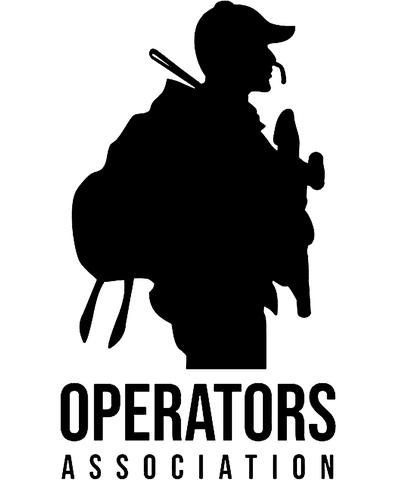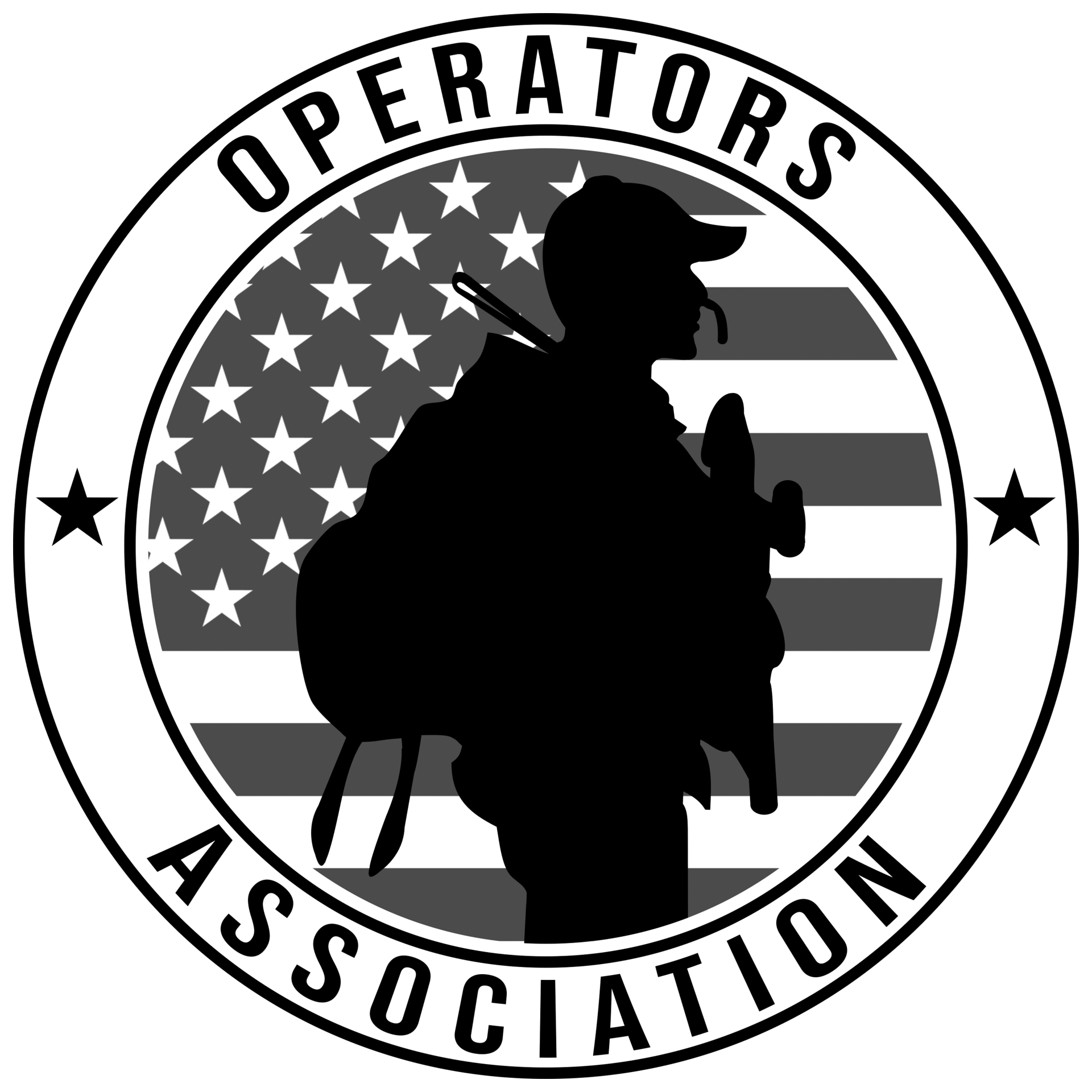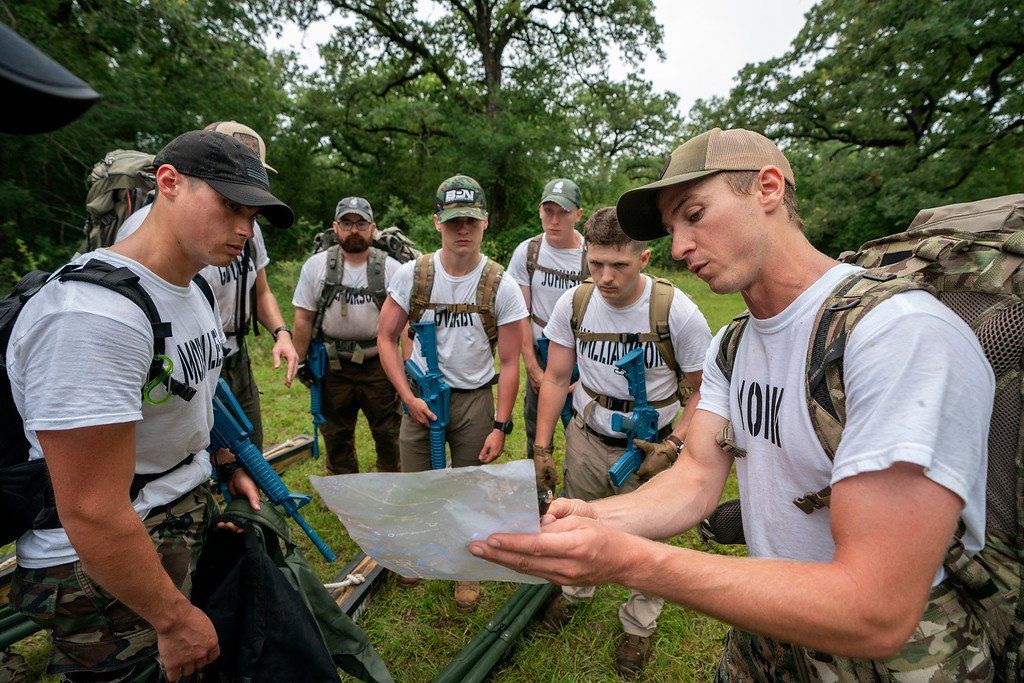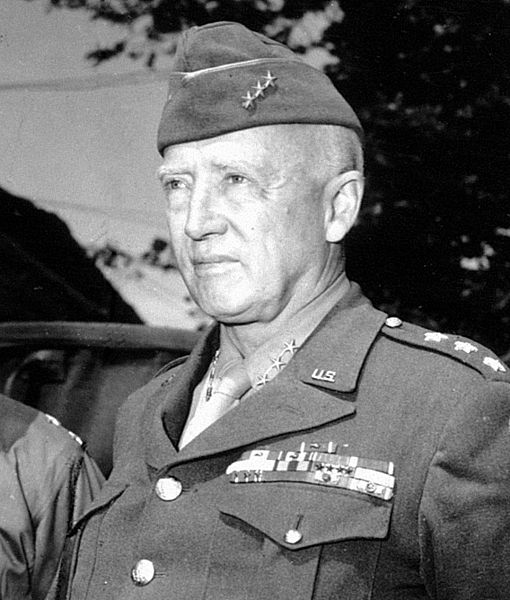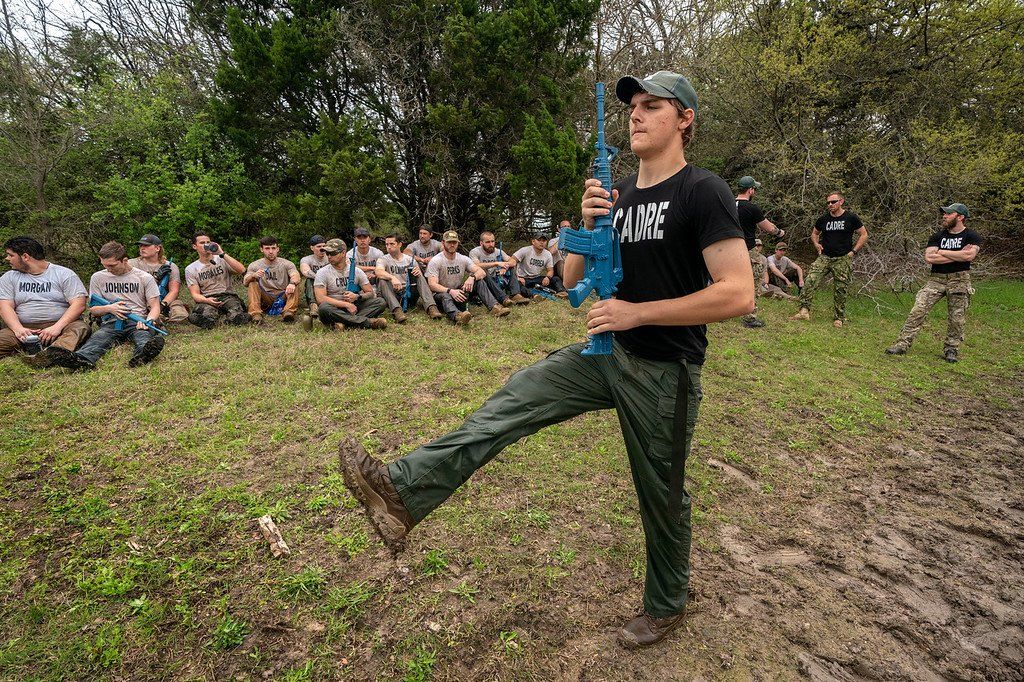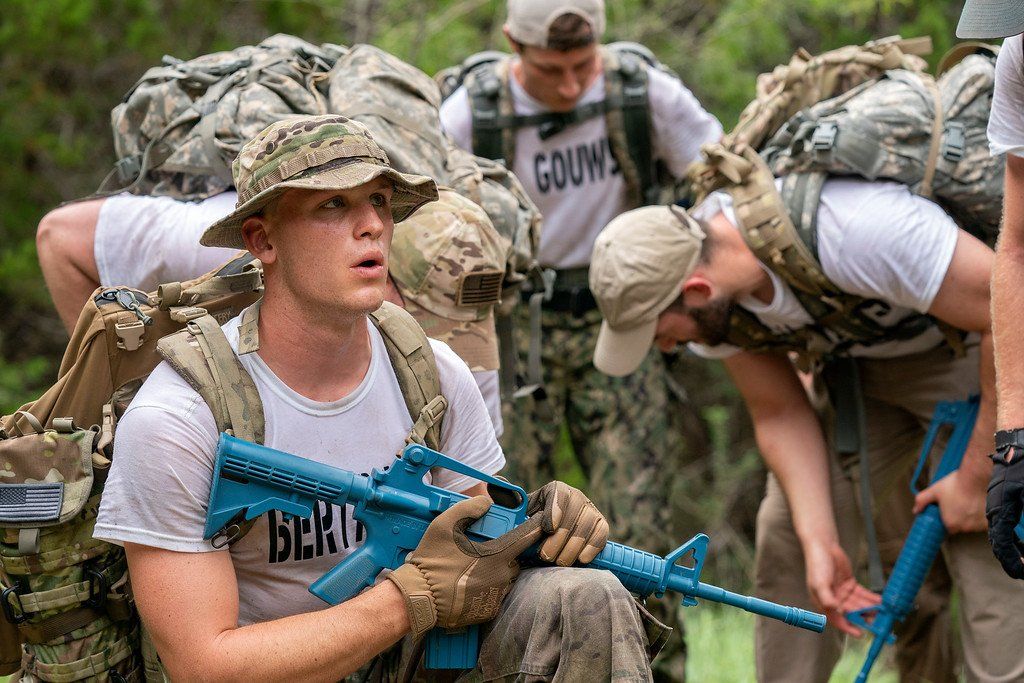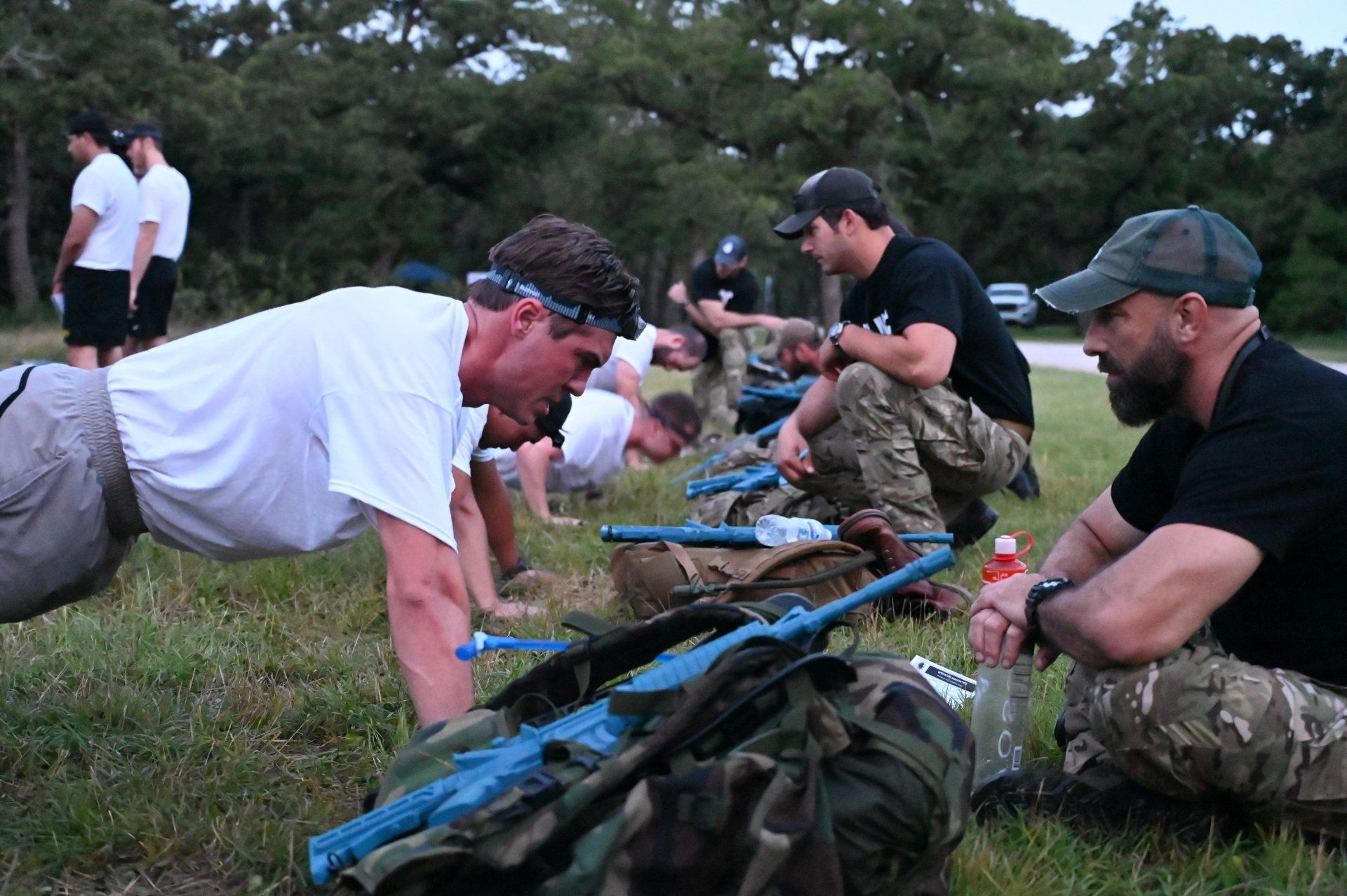4 Steps to Coaching Your People as a Leader
August 25, 2021
Coaching techniques for military and civilian leaders.
Whether you’re a military leader or a corporate officer, coaching your people and helping them improve is critical to the success of your team. Even if your subordinates are well trained and experienced, they will inevitably encounter problems that they can’t face alone. When that happens, it’s up to you to help them overcome their obstacles and help achieve the team’s mission.
In previous OA guides, we helped you communicate effectively, plan missions, and find your leadership style. In this guide, we’ll give you the tactics and strategies you need to coach your teammates and achieve victory.
Communicate with Your People
Open communication is the key to success in any endeavor that requires teamwork. The more you can inform your people of the plans, strategies, and principles behind your mission, the better equipped they'll be to accomplish it.
Coaching your people is all about helping them overcome the problems that they encounter while doing their job. But you can’t identify these problems if your teammates don't tell you about them. Before you can start coaching your people, you must ensure that they are confident and comfortable talking to you about their problems.
The best way to accomplish this is to take time to talk to each one of your teammates individually at least once every week – even if it takes up an entire day. When you invest your time into spending it with your people, they stop seeing you as just a leader and start regarding you as a friend. When you have these 1-on-1 discussions, don’t just talk about work. Instead, take a few minutes at the start to discuss things that your teammate cares about on a personal level. This can include hobbies, goals, family, vacations, and so on. The point is, don't have the discussion solely to find problems – focus on building a relationship. Once your people trust you and see you as an acquaintance, they’ll tell you their problems organically. From there, you can coach them and help them out!
Encourage Individual Ownership
While you might be putting time aside daily to help your people, you can't always be by their side. At some point, they’ll have to learn to coach themselves when you aren't around to assist them. The key to developing a self-coaching culture in your team is to encourage individual ownership.
Your people shouldn't be depending on you to help them improve. They should be looking for daily opportunities to boost their knowledge and efficacy. In the military, this can mean practicing how to field strip their weapons in case of a malfunction. In the corporate world, this might include reading books and taking courses that make them better communicators.
How can you encourage individual ownership, you ask? The answer: lead by example. If you want your people to take ownership of their improvement, you must do it first. Always look for ways to improve and share the things you learn with your teammates. Become a pacesetter for your people and inspire them to take action. Although it's not always the best leadership approach, leading from the front is sometimes exactly what your teammates need to get moving.
Consistency is Key
The world’s greatest boxer, Floyd Mayweather, is known for many things. But one aspect of his offensive game that stands out from the competition is his killer jab. If you’ve ever taken a boxing class, you’ll know that the jab is the first punch that you learn how to throw – it's boxing 101. Floyd Mayweather isn’t a brilliant boxer because he has a repertoire of flashy strikes. He’s successful because he has mastered and honed his basic skills to perfection. And the way he did that is with consistent repetition.
If you want to improve at anything from running to public speaking, you must do it often. Getting your reps in consistently is the key to experiencing sustained growth. The same is true for coaching your people. If you only coach your people once a month, you’re wasting your time. Effective coaching is a weekly – if not daily – endeavor. As a team leader, you must always be looking for opportunities to help your people. Establish an open-door policy and make it easy for your teammates to ask you for help. If a subordinate requests your assistance, help them as soon as possible. If you wait and let their problem sit, it could grow into an even bigger issue by the time you get around to coaching. Fast, consistent coaching is effective coaching.
Accountability = Constant Improvement
Improvement doesn't happen without accountability. If your teammates can't be honest with themselves and hold themselves responsible for their failures, your mission is in danger. Taking ownership of your shortcomings doesn't mean getting down on yourself for coming up short. It means recognizing when you're struggling and knowing when to ask for help. Unfortunately, being able to identify your faults and errors is easier said than done.
The solution: finding an accountability partner. Militaries around the world use a buddy system to keep their warriors effective, reliable, and accountable. It’s much easier to see faults in others than in yourself. By pairing up your teammates with accountability buddies, they can hold each other accountable more efficiently and honestly. As an added bonus, this takes some pressure off you as a coach – accountability buddies can independently coach each other.
A prime example of the buddy system at work is in the French Foreign Legion (FFL). In the Legion, French is the only language permitted to be spoken. Speaking any other tongue can carry significant consequences. There’s only one problem: when recruits from around the world join the Legion, few of them know how to speak French. The FFL solves this with the buddy system.
First, they categorize their recruits’ French-speaking abilities on a scale of 1 to 5 (with 5 being fluent and 1 being completely ignorant of the language). Recruits are then paired up with a buddy of the inverse ranking – 5s go with 1s, 2s with 4s, and 3s with other 3s. These buddy teams can then coach each other and help their partners improve without direct instruction from the cadre. You can apply a similar strategy in your team by pairing up the highest performers with those who struggle the most.
If you are on the SOF pathway, finding an accountability buddy or group is crucial to your success. Unfortunately, you might not be part of a community where you can find other aspiring operators. That’s where we come in. When you become an OA Aspiring Operator, you get access to our exclusive weekly accountability group run by special forces cadre. There, you’ll meet people who will push you to improve and test your limits. You also get access to many other exclusive benefits like SOF podcasts, invites to OA events, and a 900+ member community! Click here to check out our membership packages and get started today!
